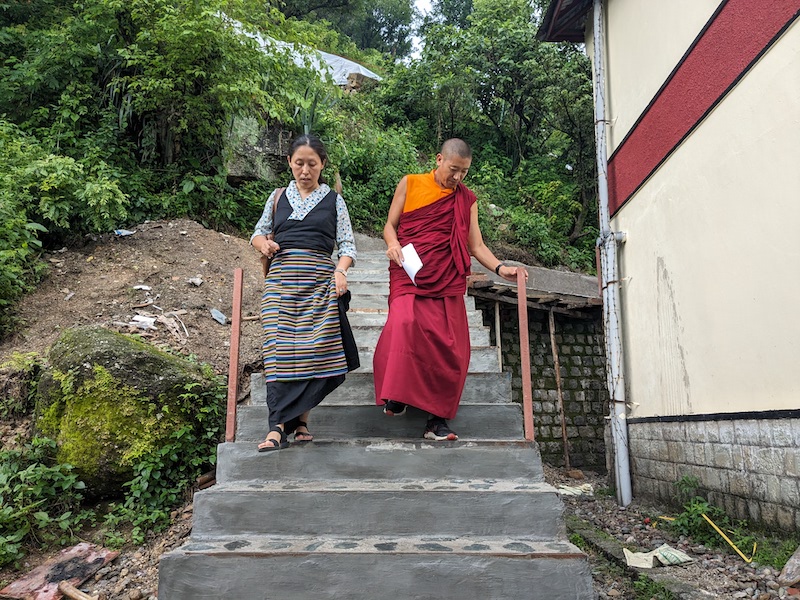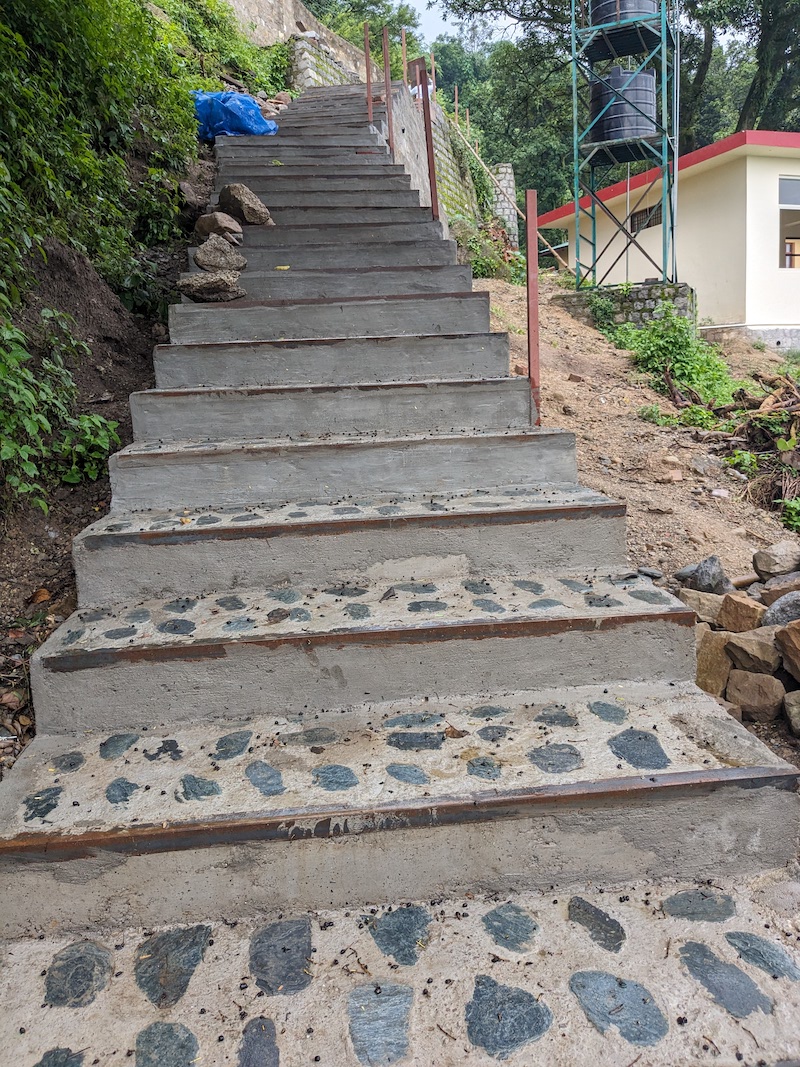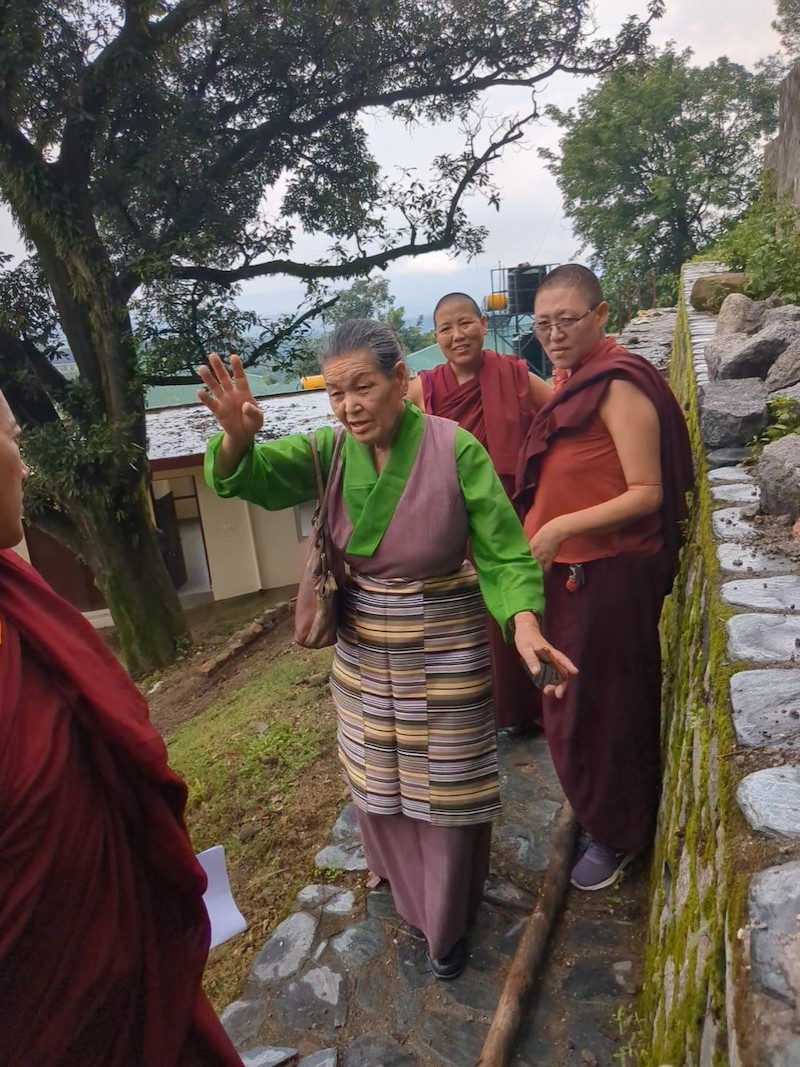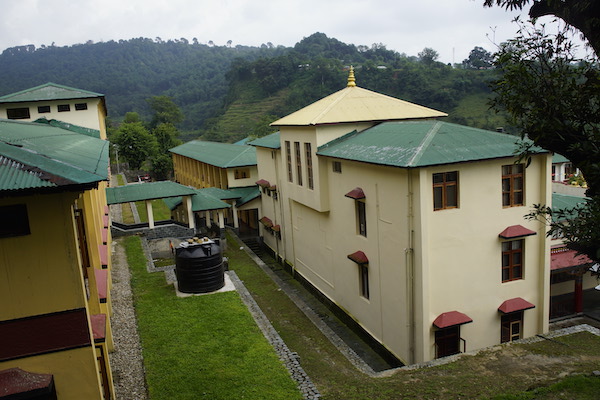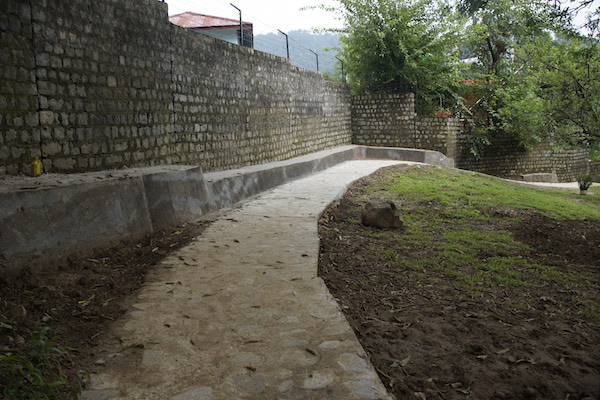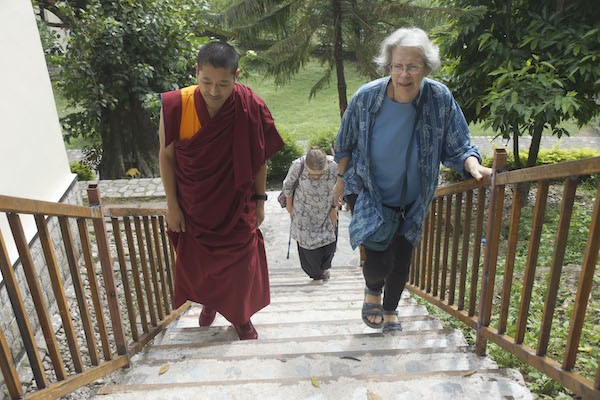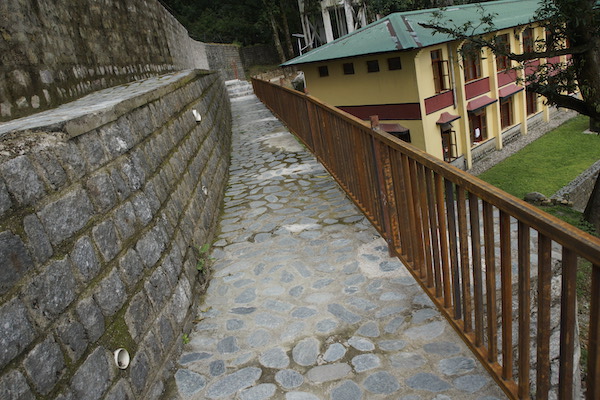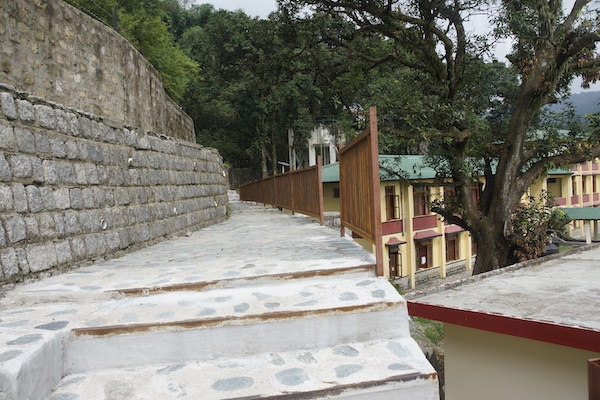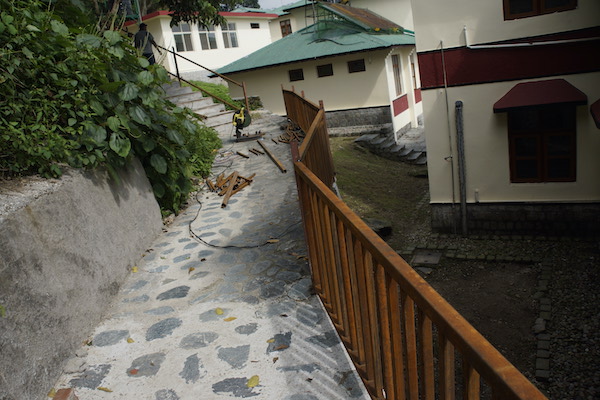In April, the two Tibetan Buddhist nunneries built and fully supported by Tibetan Nuns Project donors held their annual graduation ceremonies. We are delighted to share this news and the nuns’ photos. We send deepest thanks to all those who sponsor a nun at the nunneries.
Shugsep Nunnery Graduation Ceremony on April 5, 2025
Shugsep Nunnery and Institute, now home to about 100 nuns, is a Nyingma nunnery re-established in northern India and inaugurated 15 years ago in 2010. On April 5, the nunnery held its annual graduation ceremony. The chief guest was Speaker Khenpo Sonam Tenphel of the Tibetan Parliament-in-Exile, alongside our Founding Director and Special Advisor Kasur Rinchen Khandro, Secretary Dudrul Dorjee from the Department of Religion and Culture, and Nangsa Choedon, Director of the Tibetan Nuns Project in India.

Rinchen Khando Choegyal, the Tibetan Nuns Project Founding Director and Special Advisor, at the annual Shugsep graduation ceremony on April 5, 2025.
The ceremony recognized the nuns’ various achievements. The Speaker presented certificates to 4th, 7th, and 9th-year students. Other dignitaries awarded certificates to first-year philosophical college students, as well as to first-year and 4th-year students, primary school students, and those who received special recognition for root text memorization.

Chief guest, Venerable Khenpo Sonam Tenphel, Speaker of the of the Tibetan Parliament-in-Exile, presented certificates and the Shugsep graduation ceremony.
In his address, the Parliamentary Speaker emphasized the special responsibilities inherent in monastic life, stressing the importance of continuous mindfulness beyond routine practices. Drawing from the teachings of Acharya Vasubandhu, the Speaker outlined the core monastic educational path, which includes maintaining discipline, engaging in comprehensive study and contemplation, and dedicating oneself to diligent meditation. He noted that this approach has formed the foundation for accomplished scholars across all Tibetan Buddhist traditions.

Nangsa Choedon, Director of the Tibetan Nuns Project in India, at the Shugsep Graduation ceremony.
The Speaker provided detailed explanations of these educational pillars, including maintaining discipline through adherence to monastic vows; learning through study by pursuing education with focused attention; contemplation, which involves repeatedly examining teachings through scriptural authority and reasoning; and meditation, which focuses on internalizing knowledge to transform one’s life.
He emphasized that true education should lead to visible personal transformation, stating, “If you remain unchanged year after year, your study, contemplation, and meditation are inadequate.” The Speaker urged students not only to change themselves but also to positively influence those around them.

The Tibetan Nuns Project’s Founding Director and Special Advisor, Kasur Rinchen Khandro, and Nangsa Choedon, Director of the Tibetan Nuns Project in India, both spoke at the event.
Quoting from Shantideva’s Bodhicharyavatara, he said, “There is nothing that does not become easier through familiarization,” and added the Tibetan proverb, “All activities are practice; who is skilled among practitioners?” to underline the idea that consistent effort inevitably yields results.
The Speaker further highlighted the importance of diligence and comprehensive education, quoting The Words of My Perfect Teacher to discuss the relationship between wisdom and diligence. He noted that moderate wisdom, paired with excellent diligence, can yield superior results compared to excellent wisdom coupled with poor diligence.

Khenpo Sonam Tenphel, Speaker of the Tibetan Parliament-in-Exile, said that, in addition to traditional knowledge, students should also pursue modern sciences and languages to maximize their contributions to Tibetan religion, culture, and society.
The Speaker warned of the irreparable damage that educational deficiencies can cause, particularly concerning cultural and linguistic preservation. He concluded by calling for harmony among all present, quoting Bodhicharyavatara: “May the Sangha always be in harmony, and may the purposes of the Sangha be fulfilled.”
Annual Award Ceremony at Dolma Ling Nunnery
On April 9, 2025, the Dolma Ling Nunnery and Institute held an award ceremony to honor the top achievers of the 2024 final examinations.
Dolma Ling Nunnery and Institute of Buddhist Dialectics is a non-sectarian nunnery near Dharamsala and is home to about 277 nuns. It was inaugurated in 2005 and was the first institute dedicated to higher Buddhist education for Tibetan Buddhist nuns from all traditions.

The Dolma Ling academic award ceremony on April 9, 2025. Photo by the Dolma Ling Media Nuns.
Kabjye Yongzin Ling Choktrul Rinpoche was the Chief Guest at the award ceremony. Secretary Dhondul Dorjee from the Department of Religion and Culture and Secretary Jigme Namgyal from the Department of Education attended the event as special guests.

Tibetan Buddhist nuns at Dolma Ling receive academic awards from special guest Kabjye Yongzin Ling Choktrul Rinpoche at a ceremony on April 9, 2025.
It was also attended by the Tibetan Nuns Project’s founding director and special advisor Kasur Rinchen Khando, and Nangsa Choedon, the Director of the Tibetan Nuns Project in India.

Over 270 Tibetan Buddhist nuns gathered in the debate courtyard at Dolma Ling on April 9th for the annual ceremony honoring academic achievements. Photo by the Dolma Ling Media Nuns.
The ceremony began with the principal’s report on the history and educational activities of the Dolma Ling. Then the distinguished guests gave the awards of academic excellence to the top-performing students.
How You Can Support Nuns’ Education
Tibetan Buddhist nuns in India rely on outside support. There are many ways that you can help educate and empower the nuns including:
- Sponsor a nun for $1 a day.
- Become a monthly donor at any amount you choose.
- Support teachers by helping to fund teachers’ salaries at various nunneries
- Donate to our Long-Term Stability Fund to put our core programs on solid ground.
- Leave a legacy gift to the Tibetan Nuns Project.
Blog credit: With reporting from tibet.net















